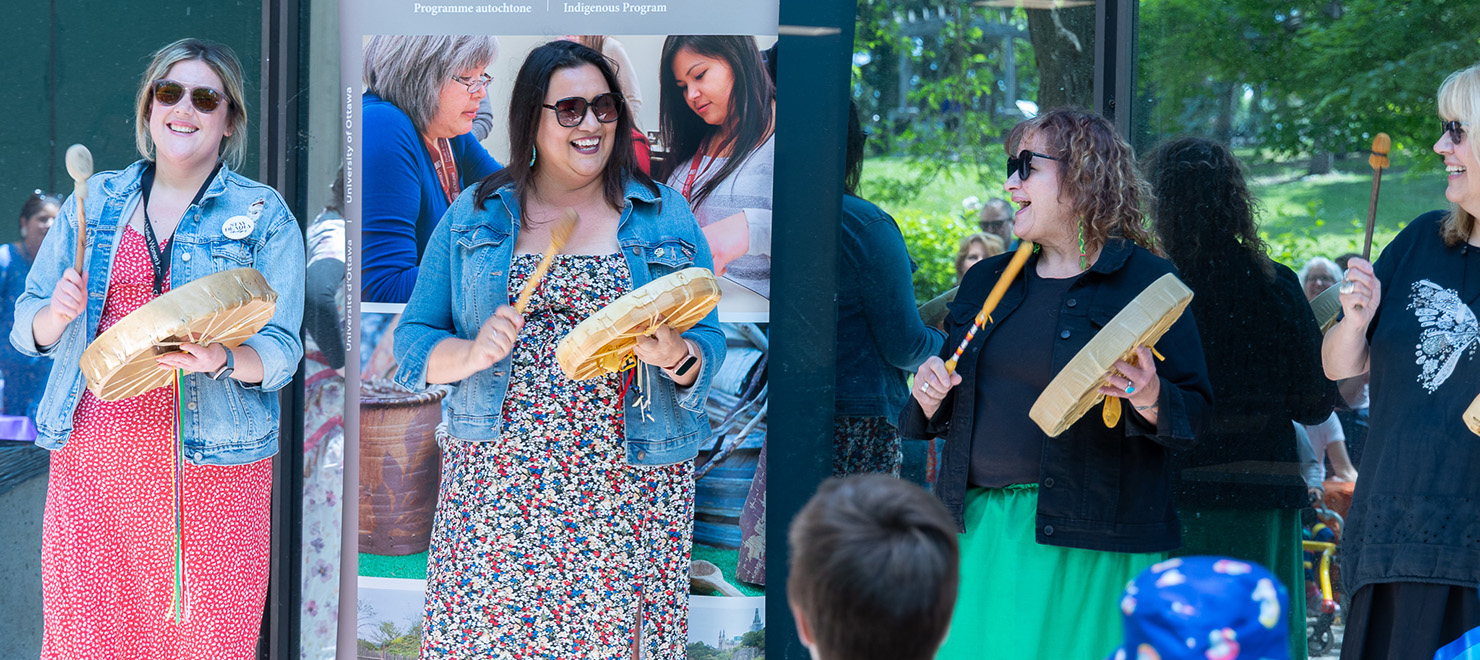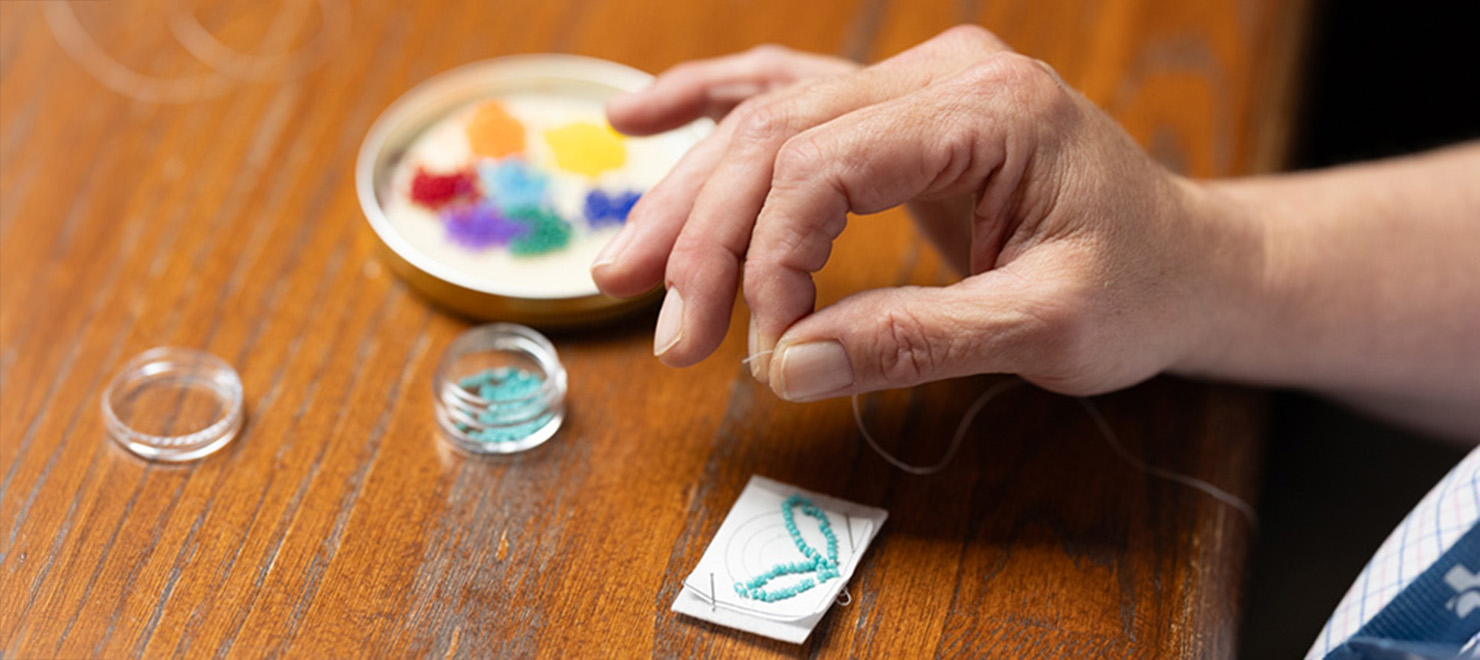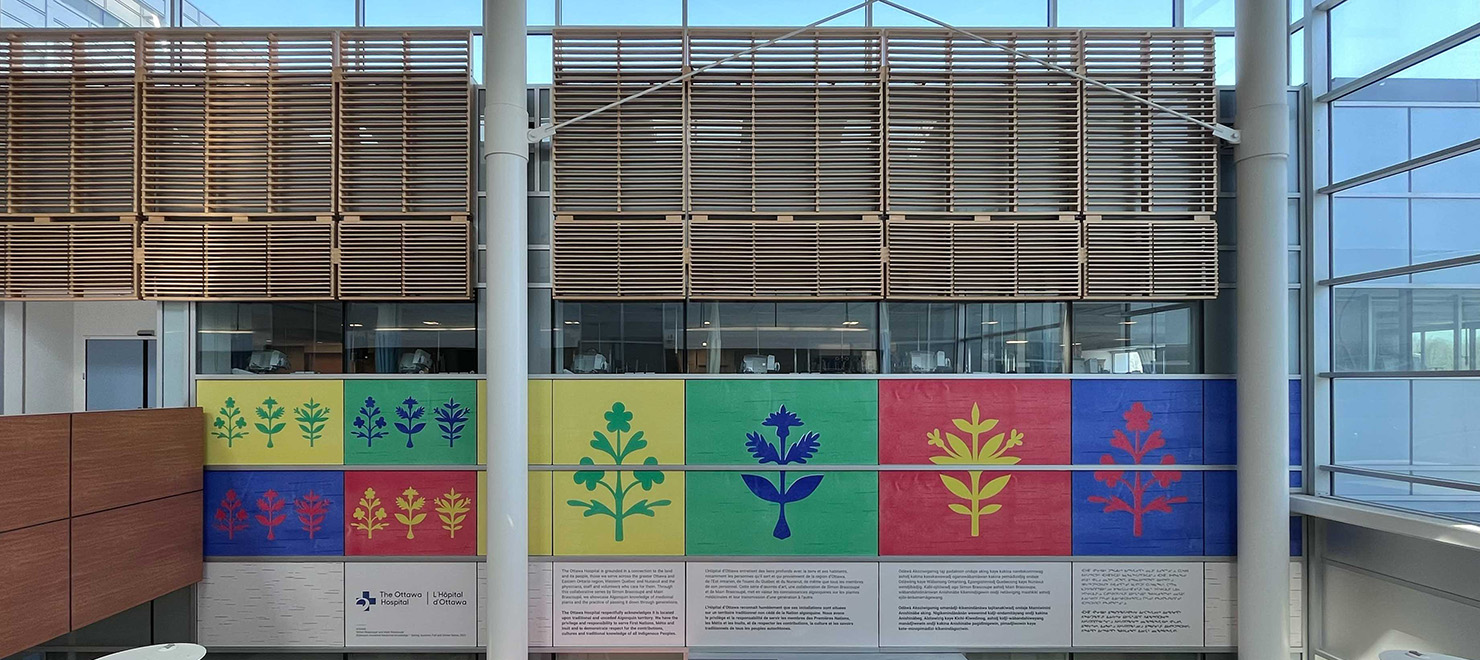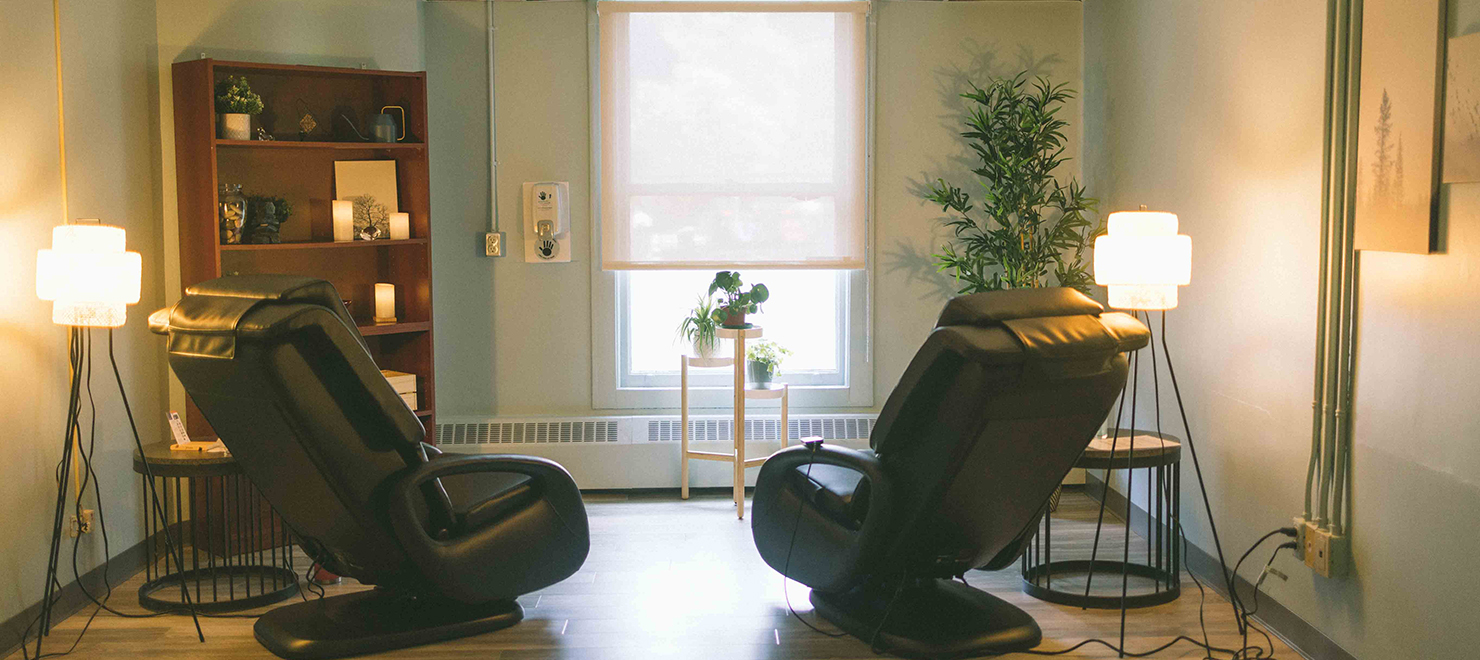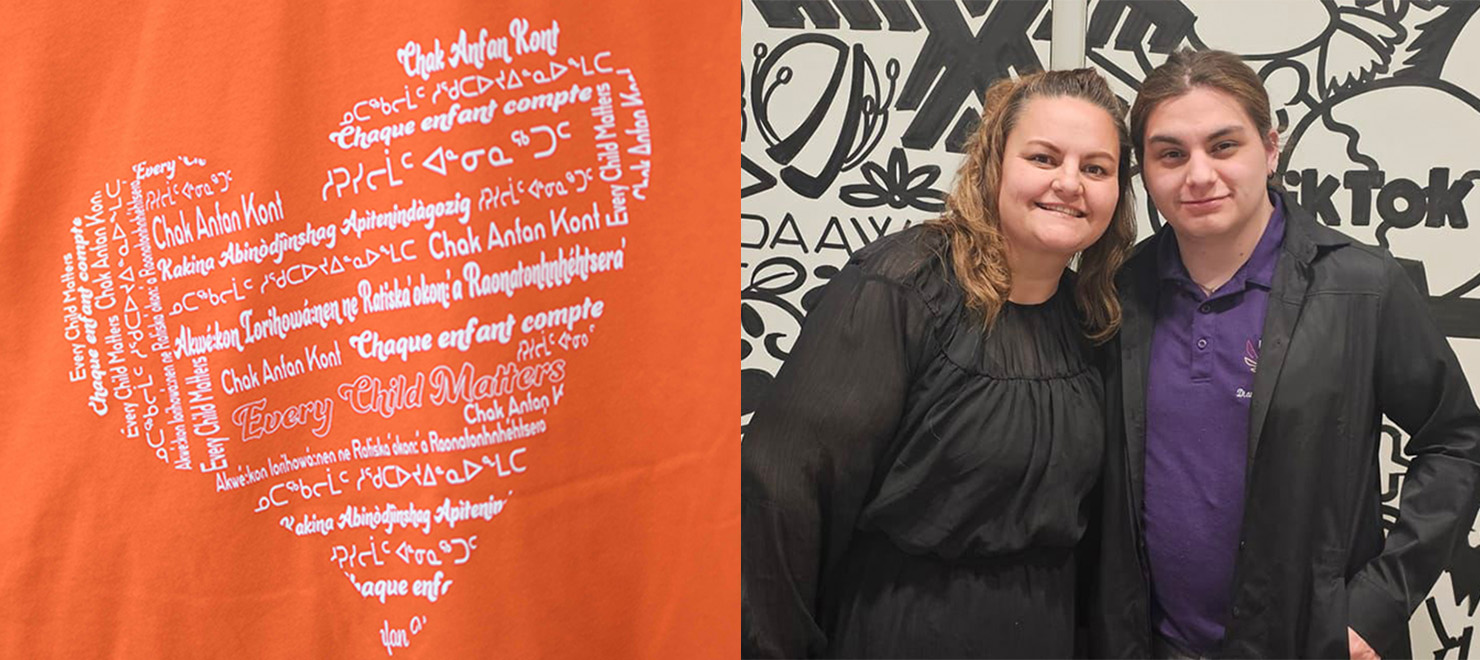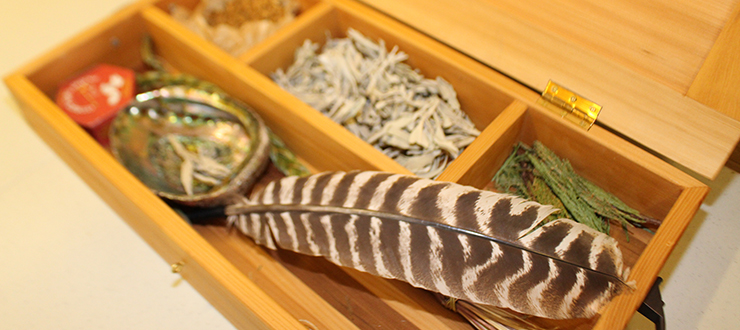
Smudging is often used when someone is born, or someone dies, or during a crisis. It might also be part of a patient’s everyday spiritual practices.
For many patients and families, spiritual practices can help manage the stress of time spent in hospital. For First Nations and Métis patients and families, these practices might include smudging ceremonies.
The Ottawa Hospital now has a procedure in place to be able to respond to requests from patients and families for smudging ceremonies.
Smudging is a traditional practice that is part of some, but not all, Indigenous cultures in Canada, and is practiced differently by different communities. Patients might request a smudging ceremony at any time, for a wide variety of reasons.
“When she learned she would be able to smudge in the hospital even though she couldn’t leave her room, there was a sense of relief.”
Karen Lawrence, Clinical Manager on 6East, requested a smudging ceremony for a patient not long after the standard operating procedure was approved.
“Smudging was part of the patient’s normal practice. When she learned she would be able to smudge in the hospital even though she couldn’t leave her room, there was a sense of relief,” she said.
Smudging is often used when someone is born, or someone dies, or during a crisis. It might also be part of a patient’s everyday spiritual practices.
During a smudging ceremony, people generally burn traditional, medicinal plants and waft the smoke over parts of the body as a spiritually cleansing ritual.
Patients can smudge in three different types of spaces at the hospital: outside the hospital building, in a designated indoor smudging area, or if the patient can’t be moved to a designated indoor smudging area, a smudge can be arranged for inpatient rooms.
Requesting a smudge was easy and seamless, said Lawrence: “There’s a lot of support to help you.”
The standard operating procedure for smudging includes safety requirements so that smoke and scent from the smudge doesn’t travel through the hospital and affect other patients, families, or staff members.
“For many of our Indigenous patients, being able to smudge while in hospital is an important part of their spiritual wellbeing,” said Gwen Barton, Manager of the First Nations, Inuit and Metis Cancer Program. “As health-care providers, it’s our responsibility to do what we can to create a culturally safe and respectful environment.”
To request a smudging ceremony, please talk to your health-care team.

Support patient care and research at
The Ottawa Hospital
You might also like…
Celebrating the summer solstice and National Indigenous Peoples Day: A photo essay
The summer solstice has deep spiritual and cultural significance for Indigenous communities around the world. Last week, we joined CHEO and uOttawa for a special celebration to mark this important time of year, and to recognize the rich cultures of First Nation, Inuit and Métis Peoples.
Bringing communities together, one stitch at a time
In celebration of June being both National Indigenous History Month and Pride Month, The Ottawa Hospital hosted a beading workshop for Indigenous and 2SLGBTQIA+ staff and their allies.
A guide to services at The Ottawa Hospital for Indigenous patients and families
At The Ottawa Hospital, we are committed to providing culturally safe care for First Nation, Inuit and Métis patients and families. We are working with Indigenous partners to identify ways we can make your time in hospital more welcoming. Here are some of the ways we’re doing that now.
A guide to mindful movement for pain management
Are you seeking relief from pain, discomfort or stress? In these four videos, Physiotherapist Cristin Kargus guides you through gentle, mindful movements to help you reconnect with your body.
Caring for our health-care workers
With access to family physicians, mental health support and even rejuvenating massage chairs, The Ottawa Hospital’s Wellness Program is working hard to support our staff and medical staff. For a closer look at how, check out this comprehensive guide to wellness resources at our hospital.
More than a shirt: Orange shirts support healing and community
Pamela Meness, owner of Diamond Phoenix Creations, the Kitigan Zibi-based supplier of The Ottawa Hospital’s Every Child Matters orange t-shirts, says her business is about healing and community.


 To reset, hold the Ctrl key, then press 0.
To reset, hold the Ctrl key, then press 0.
